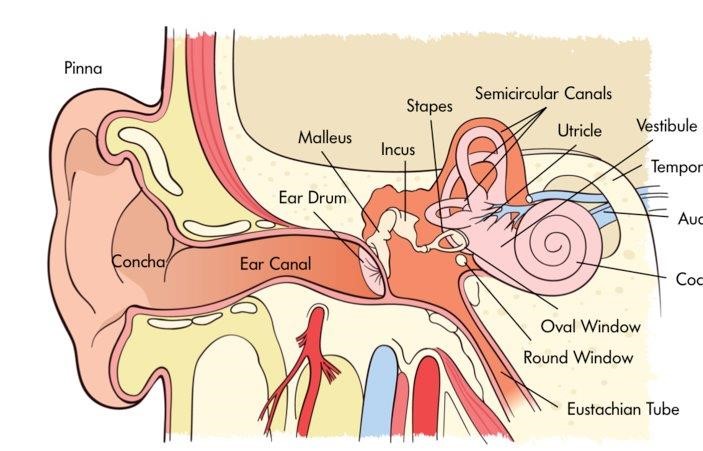Hearing Loss, Cochlear Implants and Hearing Rehabilitation
Hearing loss affects approximately one-third of adults between 60 and 70 years of age, and more than 80% of adults over 85 years. Hearing loss is on the rise in children and teenagers as well. To learn more about hearing loss click here.
Cochlear implants are small electronic devices that can help provide a sense of sound to patients who are deaf or severely hard of hearing. To learn more about cochlear implants click here.
Hearing Aids can make a profound difference in a user’s ability to hear their family, friends and their environment. To learn more about hearing aids, including bone anchored hearing aids (BAHA), click here.
If you would like to make an appointment to see a UMASS specialist in hearing loss please contact us at: 508-856-4161
 Hearing loss is a common problem, affecting over 500 million people worldwide. The most common type of hearing loss occurs gradually over time and is termed ‘presbycusis’ – or age-related hearing loss. For patients over 65, almost 1 in 2 people are affected. Risk factors for nerve related hearing loss include excessive exposure to noise, head injury, a family history of hearing loss and diseases affecting the inner ear.
Hearing loss is a common problem, affecting over 500 million people worldwide. The most common type of hearing loss occurs gradually over time and is termed ‘presbycusis’ – or age-related hearing loss. For patients over 65, almost 1 in 2 people are affected. Risk factors for nerve related hearing loss include excessive exposure to noise, head injury, a family history of hearing loss and diseases affecting the inner ear.
Other causes of hearing loss include excessive ear wax, which can temporarily prevent your ears from conducting sound as well as it should. Rupture of your eardrum or fixation of the bones of hearing can also result in conductive hearing loss. Chronic ear infections, like otitis media, can also affect your hearing.
Any hearing loss in one ear, especially those that occur suddenly, should be evaluated by a medical professional right away.
Common symptoms of hearing loss include:
- Blockage, fullness or dampening of sound in one or both ears
- Frequently asking others to repeat themselves
- Difficulty hearing words in background noise
- Withdrawal from conversations
- Avoiding social interactions
Evaluation of Hearing Loss:
Audiologists are medical professionals who can formally evaluate hearing to provide a measure of your ear’s ability to hear. They also provide important counseling on better methods of communication and can recommend certain treatment options, like hearing aids, when appropriate.
Some types of hearing loss may be correctible through surgical procedures. Otologists are surgeon specialists who routinely perform procedures on the ear to improve hearing. Evaluation by an otologist consists of a history and full head and neck exam as well as counseling on recommended treatment options.
Benefits of Treating Hearing Loss:
Patients who experience hearing loss have difficulty communicating with the people around them. Research has shown that patients with untreated hearing loss are at higher risk of social isolation, depression, anxiety and possibly early onset dementia.
Treatment of hearing loss can allow affected individuals to reintegrate with their family and friends. Patients frequently have an improved outlook on life, greater self-confidence, and closer relationships with loved ones.
Preventing Hearing Loss is the Best Treatment of All:
Because we know excessive noise can lead to hearing loss, protecting your ears can go a long way to preventing progressive hearing loss as you age.
- If you work in a noisy environment, protect your ears with ear plugs or muffs
- If you enjoy recreational activities with loud noise exposure, such as hunting, motorcycling, or listening to loud music, wear hearing protection, or try and turn the volume down
- Have your hearing tested routinely – this is the best method to ensure you’re in charge of your hearing health
Our audiology team can help you choose the right type of hearing protection based on your work or recreational exposures. Custom earplugs can help to considerably reduce the impact of loud noise on your ears.
For more information about how your hearing works and the types of hearing loss please visit:
The National Institute for Hearing Loss and Other Communication Disorders (NIDCD)
www.nidcd.nih.gov/health/hearing-ear-infections-deafness
